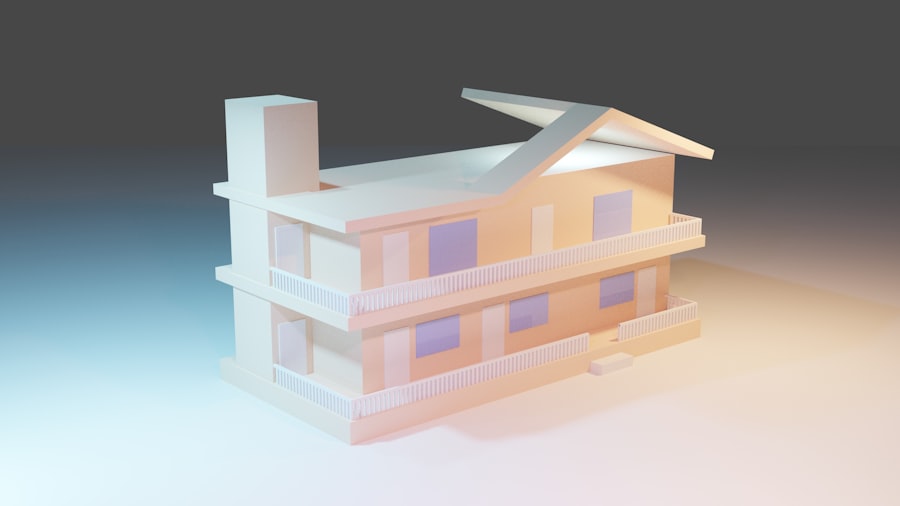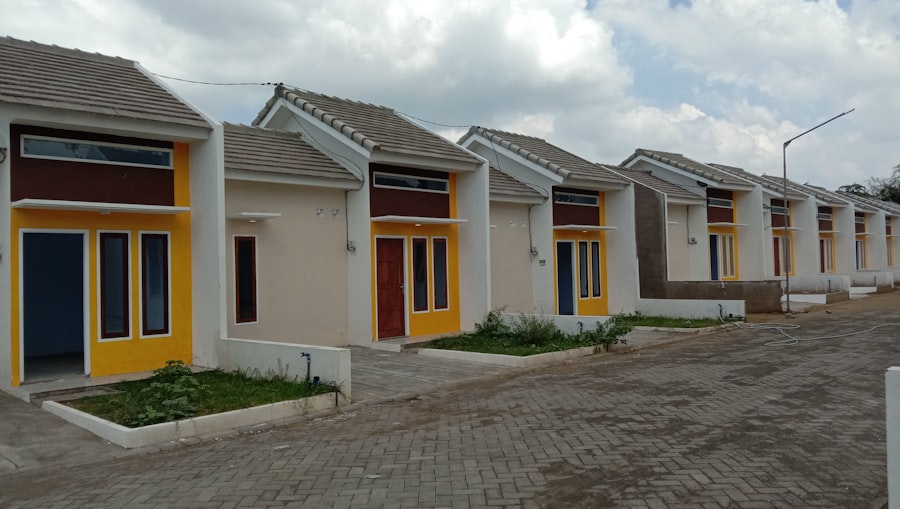The landscape of housing has evolved significantly over the past few decades, with manufactured homes emerging as a viable and affordable alternative to traditional site-built homes. These homes, often referred to as mobile homes, are constructed in factories and transported to their final locations, offering a unique blend of affordability, flexibility, and modern amenities. As the demand for affordable housing continues to rise, particularly in urban areas where real estate prices have skyrocketed, manufactured homes present an attractive option for many individuals and families seeking to achieve homeownership without incurring crippling debt.
Affordable manufactured homes are particularly appealing to first-time homebuyers, retirees looking to downsize, and those seeking a secondary residence. The affordability of these homes is not merely a matter of lower purchase prices; they also tend to have lower maintenance costs and utility expenses compared to traditional homes. Furthermore, advancements in construction technology have led to improved energy efficiency and design options, making manufactured homes more appealing than ever.
As potential buyers explore their options, understanding the nuances of manufactured homes becomes essential in making informed decisions that align with their financial and lifestyle goals.
Key Takeaways
- Manufactured homes offer an affordable housing alternative with various types to suit different needs.
- Key factors in choosing a cheap manufactured home include size, location, and quality.
- The most budget-friendly options often involve smaller, older, or less customized models.
- Finding reputable dealers and exploring diverse financing options can help secure the best deals.
- Buyers should be aware of potential hidden costs and carefully evaluate all aspects before purchase.
Understanding the Different Types of Manufactured Homes
Manufactured homes can be categorized into several types, each designed to meet different needs and preferences. The most common classifications include single-section homes, double-section homes, and triple-section homes. Single-section homes, often referred to as single-wides, are typically narrower and can be transported as a single unit.
These homes are ideal for individuals or small families who prioritize affordability and simplicity. They usually range from 400 to 1,200 square feet and can be placed on smaller lots or in mobile home parks. Double-section homes, or double-wides, consist of two sections that are joined together on-site.
This type of manufactured home offers more living space, typically ranging from 1,000 to 2,000 square feet. Double-section homes often feature more elaborate floor plans with multiple bedrooms and bathrooms, making them suitable for larger families or those who desire more room for entertaining. Triple-section homes take this concept further by combining three sections into one expansive living space, providing even more square footage and customization options.
These larger models can rival traditional homes in terms of size and amenities.
Factors to Consider When Choosing a Cheap Manufactured Home

When selecting an affordable manufactured home, several critical factors must be taken into account to ensure that the investment aligns with personal needs and financial capabilities. One of the foremost considerations is the location of the home. Prospective buyers should evaluate the proximity to essential services such as schools, healthcare facilities, shopping centers, and public transportation.
Additionally, zoning regulations and land use policies in the chosen area can significantly impact the feasibility of placing a manufactured home on a particular lot. Another vital factor is the quality of construction and materials used in the home. While affordability is a primary concern, it is essential not to compromise on quality.
Buyers should look for homes built by reputable manufacturers that adhere to the standards set by the U.S. Department of Housing and Urban Development (HUD). Inspecting the home for energy efficiency features, structural integrity, and overall craftsmanship can help ensure that the investment will provide long-term value.
Furthermore, potential buyers should consider their lifestyle needs—such as the number of bedrooms, bathrooms, and outdoor space—when evaluating different models.
The Cheapest Options for Manufactured Homes
| Home Model | Size (sq ft) | Bedrooms | Bathrooms | Base Price | Manufacturer | Energy Efficiency Rating |
|---|---|---|---|---|---|---|
| EcoLite 1 | 400 | 1 | 1 | 30,000 | GreenBuild Homes | A |
| Budget Haven | 500 | 2 | 1 | 35,000 | Affordable Living | B |
| SimpleNest | 450 | 1 | 1 | 32,500 | HomeStart | B+ |
| Value Villa | 600 | 2 | 2 | 40,000 | Budget Builders | A- |
| Compact Comfort | 550 | 2 | 1 | 37,500 | EcoHomes | A |
For those on a tight budget, exploring the cheapest options for manufactured homes can yield some surprising finds. One of the most economical choices is purchasing a pre-owned manufactured home. These homes often come at significantly reduced prices compared to new models and can provide excellent value if well-maintained.
Buyers should conduct thorough inspections and consider hiring a professional inspector to assess the condition of any used home before making a purchase. Another cost-effective option is to consider smaller models or those with simpler designs. Single-section homes typically represent the lowest price point in the manufactured home market.
While they may offer less square footage than larger models, they can still provide comfortable living spaces for individuals or small families. Additionally, opting for basic finishes rather than high-end upgrades can further reduce costs without sacrificing functionality. Many manufacturers offer customizable options that allow buyers to select features that fit their budget while still meeting their essential needs.
Tips for Finding Affordable Manufactured Home Dealers
Finding reputable dealers who specialize in affordable manufactured homes is crucial for ensuring a smooth purchasing process. One effective strategy is to conduct thorough research online to identify local dealers with positive reviews and a solid reputation in the community. Websites such as the Better Business Bureau (BBB) can provide insights into customer experiences and any complaints lodged against specific dealers.
Networking within local communities can also yield valuable recommendations. Engaging with current manufactured homeowners through social media groups or local forums can provide firsthand insights into their experiences with various dealers. Additionally, attending home shows or expos dedicated to manufactured housing can allow potential buyers to meet dealers in person, explore different models, and ask questions about financing options and warranties.
Building a relationship with a knowledgeable dealer can facilitate a smoother buying experience and provide access to exclusive deals or promotions.
Financing Options for Affordable Manufactured Homes

Financing a manufactured home can differ significantly from traditional home loans due to the unique nature of these properties. Many lenders offer specialized financing options tailored specifically for manufactured homes. One common route is obtaining a chattel loan, which is secured by the home itself rather than the land it sits on.
Chattel loans typically have shorter terms and higher interest rates compared to conventional mortgages but can be an accessible option for those purchasing a manufactured home without land. For buyers who intend to purchase both the home and the land it will occupy, traditional mortgage options may be available through various lenders. These loans often come with more favorable terms and interest rates since they are secured by real property rather than personal property.
Additionally, some government-backed programs, such as FHA loans or VA loans, may offer financing options specifically designed for manufactured homes, making them more accessible for eligible buyers.
Potential Hidden Costs of Cheap Manufactured Homes
While affordable manufactured homes present an attractive option for budget-conscious buyers, it is essential to be aware of potential hidden costs that may arise during ownership. One significant expense is site preparation and installation costs. Depending on the location and specific requirements of the land where the home will be placed, buyers may need to invest in grading, foundation work, utility connections, and permits—all of which can add up quickly.
Maintenance costs should also be factored into the overall budget. While manufactured homes are generally designed for durability, they still require regular upkeep just like any other property. This includes routine maintenance tasks such as roof inspections, plumbing checks, and HVAC servicing.
Additionally, homeowners should consider property taxes and insurance premiums associated with owning a manufactured home, as these costs can vary significantly based on location and local regulations.
Final Considerations Before Purchasing a Cheap Manufactured Home
Before finalizing the purchase of an affordable manufactured home, prospective buyers should take time to reflect on their long-term goals and lifestyle preferences. It is crucial to assess whether a manufactured home aligns with personal aspirations regarding space, community living, and future mobility. For instance, individuals who anticipate relocating frequently may find that a manufactured home offers the flexibility they need without being tied down by traditional real estate commitments.
Moreover, understanding local zoning laws and community regulations is vital before making a purchase decision. Some areas have restrictions on where manufactured homes can be placed or may require specific permits for installation. Engaging with local authorities or consulting with real estate professionals familiar with manufactured housing can help navigate these complexities effectively.
Ultimately, thorough research combined with careful consideration will empower buyers to make informed decisions that lead to successful homeownership experiences in affordable manufactured housing.



